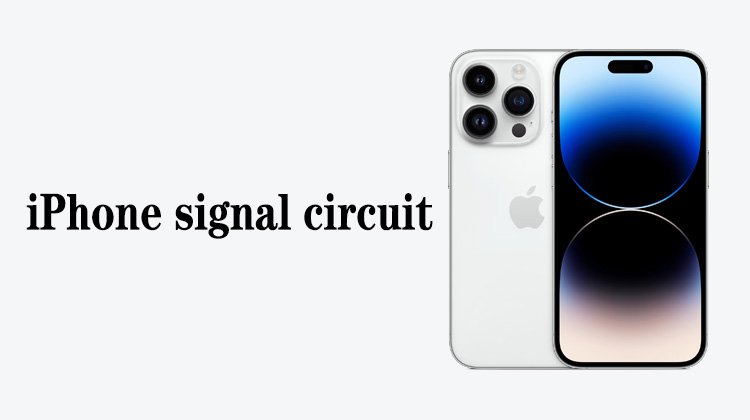1
00:00:01,166 --> 00:00:06,466
This lesson talks about the connection channels of the 4G frequency band
2
00:00:06,466 --> 00:00:09,400
of the three major platforms in the circuit diagram,
3
00:00:11,500 --> 00:00:16,800
how HiSilicon, MediaTek, and Qualcomm reflect the receiving
4
00:00:16,800 --> 00:00:22,233
and transmitting channels of the 4G frequency band of the mobile phone in the drawings
5
00:00:23,600 --> 00:00:26,500
Let's look at the Huawei P40 first
6
00:00:27,866 --> 00:00:33,666
Open this Xinzhizao maintenance query system, find the model of P40, and find its schematic diagram
7
00:00:35,933 --> 00:00:40,500
After opening the schematic, you can find it from its antenna
8
00:00:41,600 --> 00:00:47,700
This is the transceiver channel of the RF circuit in the B3 frequency band of the P40
9
00:00:50,700 --> 00:00:53,700
Antenna is J5607
10
00:00:58,600 --> 00:01:01,166
The reception is from the outside to the inside.
11
00:01:02,400 --> 00:01:09,300
After the electromagnetic wave in the air is converted into an electrical signal by the antenna, it is given to the filter,
12
00:01:10,766 --> 00:01:15,700
and then the filter is given to the single-pole 4-throw switch.
13
00:01:16,900 --> 00:01:22,100
After passing through this switch, the received signal continues to go to the filter
14
00:01:23,966 --> 00:01:31,666
After filtering out the clutter, an intermediate frequency band transceiver signal is formed,
15
00:01:33,200 --> 00:01:39,533
which is sent to the 36 pin of the antenna switch
16
00:01:40,266 --> 00:01:47,333
Come out from pin 27 to form the receiving signal of the B3 frequency band
17
00:01:50,933 --> 00:01:59,300
Continue to go through the inductor and go to the receiving amplifier, which amplifies its electric power
18
00:02:05,800 --> 00:02:13,033
After amplification, output and receive signals from A4 A6 A8 pins
19
00:02:17,766 --> 00:02:25,533
The received signal reaches the RF transceiver, which mixes it
20
00:02:30,700 --> 00:02:35,966
USR_DL signal is formed after mixing
21
00:02:36,733 --> 00:02:42,133
This downlink is the reception of the mobile phone
22
00:02:47,566 --> 00:02:52,566
This downlink signal is sent to the big CPU
23
00:02:54,400 --> 00:02:58,566
The large CPU contains a baseband CPU
24
00:03:00,866 --> 00:03:06,633
The baseband CPU demodulates the downlink signal,
25
00:03:06,633 --> 00:03:13,300
and finally restores the video and picture information, as well as some data
26
00:03:14,066 --> 00:03:17,833
For the receiving channel, we can find the CPU.
27
00:03:18,100 --> 00:03:19,433
This is its receiving line
28
00:03:20,033 --> 00:03:25,266
The emission line can also be searched from its CPU
29
00:03:25,800 --> 00:03:31,766
The AD5 pin of the CPU outputs the UL signal, that is, the emission signal
30
00:03:37,833 --> 00:03:43,033
The uplink signal is sent to the RF transceiver, mixed by the RF transceiver,
31
00:03:48,266 --> 00:03:52,266
and becomes a transmitted high-frequency signal
32
00:03:57,200 --> 00:04:02,233
This mid-band line transmits the signal and continues to go to the power amplifier
33
00:04:05,500 --> 00:04:12,300
The power amplifier amplifies the power of the transmitted signal, and then outputs it from pin 25
34
00:04:18,266 --> 00:04:23,933
It becomes the transmission signal of the B3 frequency band
35
00:04:25,466 --> 00:04:31,633
The signal reaches the 8th pin of the antenna switch U4801 through the inductor
36
00:04:33,600 --> 00:04:40,633
Antenna switch conducts pin 8 and pin 36 under controlled conditions
37
00:04:41,933 --> 00:04:48,933
Pin 36 is a line connected to the antenna end, pin 8 is the transmitting signal
38
00:04:51,433 --> 00:04:55,333
This switch acts as a conduction
39
00:04:56,366 --> 00:05:02,200
At this time, the transmitted signal passes through the filter Z4801
40
00:05:02,200 --> 00:05:08,133
to filter out the clutter and reaches a double-pole four-throw switch
41
00:05:12,833 --> 00:05:23,433
This switch has multiple antenna inputs and multiple line outputs, so it is called double-pole four-throw
42
00:05:26,900 --> 00:05:36,733
The signal comes out from pin 3, passes through the filter Z5603 to filter out the clutter, outputs from pin 3,
43
00:05:37,400 --> 00:05:42,966
and reaches the first pin of the antenna base J5607
44
00:05:44,566 --> 00:05:50,133
There is an antenna installed on the antenna base
45
00:05:52,466 --> 00:06:00,133
The antenna turns this high-frequency signal into a high-frequency electromagnetic wave
46
00:06:00,133 --> 00:06:04,133
and transmits it to the base station
47
00:06:06,866 --> 00:06:16,166
This is the transceiver channel of the radio frequency circuit of Huawei P40 frequency band
48
00:06:19,733 --> 00:06:21,866
That's all for this lesson






